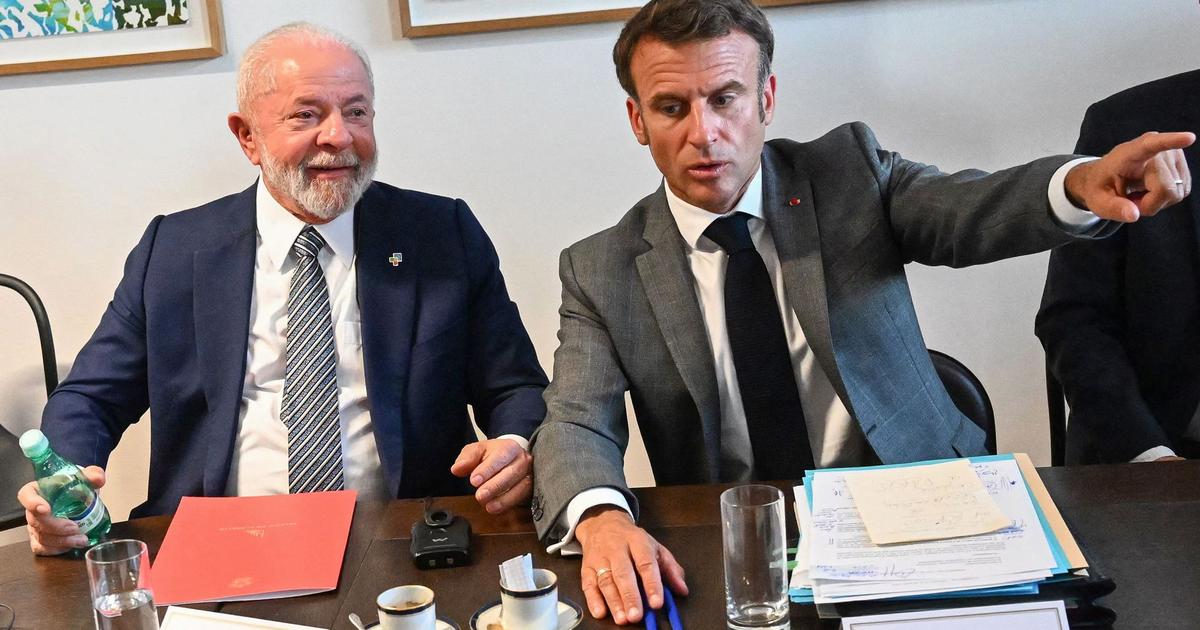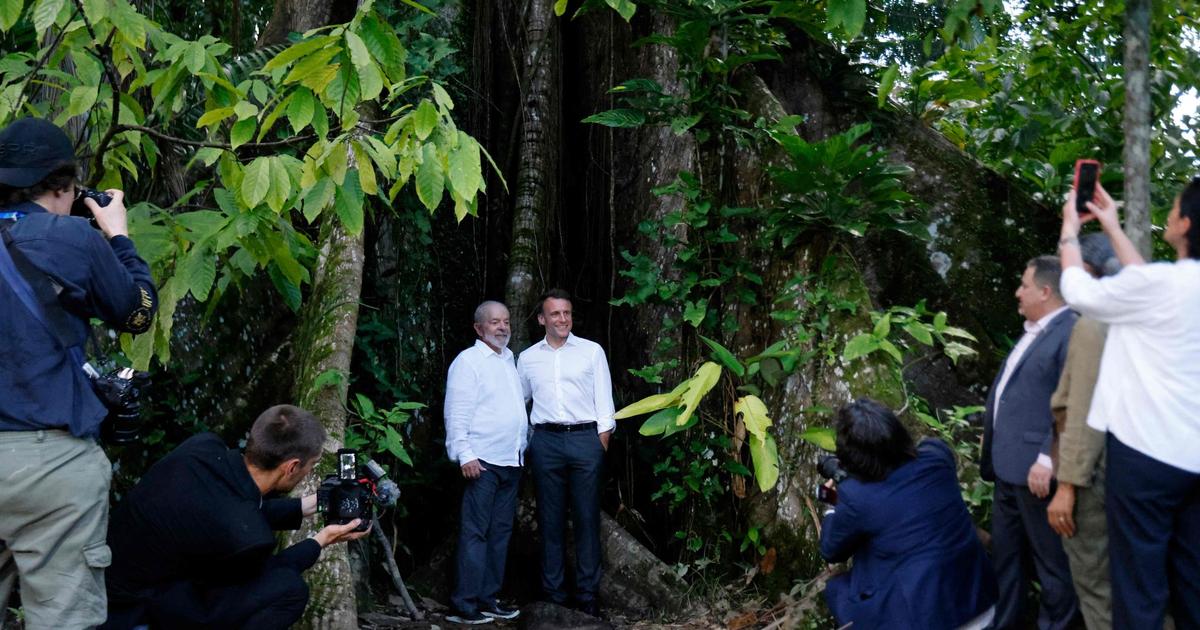A little less than four months after Lula's return to the Presidency of Brazil, after a victory that all democrats celebrate with deep relief, his political action is confirmed as a project that could be decisive in rebuilding a broken and broken international system. with a drift towards confrontation, as a consequence of the Russian invasion of Ukraine and the growing rivalry between the United States and China.
During my time at the helm of the Government of Spain, I coincided with Lula as president of Brazil and I can reaffirm that I saw in him a decent leader, devoted to the fight against poverty and with a clear conception in defense of multilateralism, of the peaceful solution of conflicts and cooperation as principles of international relations.
During this period, he demonstrated his ability to turn Brazil, a democracy in the Western Hemisphere, into a power in the international arena, with a far-reaching vision and in defense of that constructive multilateralism, where the fight against inequalities and the environmental future of the planet were also global priorities.
Lula demonstrated that it is desirable and possible to build a positive relationship between the West and the East, and between the North and the South at the same time.
He had the ability to promote initiatives such as the Alliance Against Hunger or the creation of the BRICS, to fill gaps in the international system in force since World War II.
Ignoring or not understanding the great changes in geopolitics and geoeconomics of the 21st century will mean delving into the dangerous path of division and confrontation in the international system.
Some information should be kept in mind in this regard.
The GATE
think tank
has developed a Global Economic Center of Gravity, weighting the weight of each country in world GDP by its geographical coordinates.
The result of the analysis is that this center of gravity was located in the sixties of the last century in the North Atlantic, between Europe and the United States, but since then it has been shifting and is now located in the middle of the Pacific, between China and the United States. USA, and every year it is getting closer to Asia.
Along with this reality, or in parallel, the growing rise of China as a power is evident, which is not a historical anomaly, since, until 1850, it always occupied a prominent place on the international scene.
On the other hand, it is very understandable that regions such as Latin America or Africa demand a more equitable multilateral international system in the face of the sterile and dangerous polarization in political blocs.
And it is that, in my opinion, what is best for democracies, the best way to prevent or avoid their setback, is to advance in the construction of an International Political Community, that is, with more cooperation and more integration.
The most pressing challenges for the well-being of societies, both from demoliberal models and those of another sign, are global and require cooperative vision and action.
This has been certified with the financial crises, the pandemic, the urgent fight against climate change, migration, the fight against inequalities and, of course, the peaceful resolution of conflicts and the reaffirmation of an equitable international order.
It is about reaffirming and updating the founding principles of the United Nations, the San Francisco Charter and, in a singular way, that ambitious common program represented by the SDGs (Sustainable Development Goals), which surely constitute the most demanding commitment that the international community have ever achieved.
It is unthinkable that progress can be made in their fulfillment in a climate of confrontation and cold wars.
The SDGs call for dialogue, cooperation and global stability.
Well then, this long-range project of multilateralism, peace, cooperation and global equity is Lula's project.
Since he began his third term, President Lula has fostered a new global political situation.
In the short time that has elapsed, he has affirmed, during his visit to the United States, a constructive dialogue with President Joe Biden;
he has ratified his attitude of collaboration with China and the BRICS;
he has received the German chancellor;
has formulated a peace proposal for Ukraine with the creation of a G-20 for that purpose;
He has spoken with President Volodímir Zelenski;
and his special adviser, the respected diplomat Celso Amorín, has met with Vladimir Putin.
There cannot be a balanced international order without the US as a fundamental player, but it is also clear that the US and its allies cannot aspire to a stable international system without counting on emerging countries and regions.
Only with this vision can we aspire to an International Community of peace and cooperation.
Lula's peace proposal therefore deserves to be heard.
The international weight and the strategic position of Brazil thus advise it.
Its distance from a war in Europe is only geographical, not political or strategic.
Precisely because this commitment to the global order responds to convictions, it transcends the pure and simple interest of the country.
In addition, Lula has a special relationship with Africa, that continent so in need of cooperation, and he has very broad support in Latin America.
We must celebrate that an Ibero-American leader plays such a determining role on the international political scene.
As part of his global offensive, Lula makes his first visit to Europe.
And he has chosen the Iberian Peninsula for this, Portugal, for obvious reasons, and Spain because, as I have been able to verify in various personal conversations, Lula grants a relevant strategic value to our country in the international order.
And it is, without a doubt, good news that it is so.
President Pedro Sánchez has also demonstrated a solid position in international relations.
He has done so both in his leadership on decisive issues in the European Union, as well as in his intelligent attitude in favor of building positive relations with the great powers, and also because of his interest in Africa and the attempt to renew a deeper commitment with Latin America. .
For all these reasons, Brazil and Spain can very well come together in the necessary task of rebuilding the International Political Community.
They are two countries with an almost unlimited capacity for international dialogue, and that have two strong leaders at the helm of their governments, who are united by their multilateral vision and a proven commitment to the fight against climate change as well as inequalities and poverty.
On the night of October 30 of last year, the day of Lula's electoral victory, I heard these words addressed to the guests who had come to São Paulo to support him: “We do not deserve a new cold war and we are not going to accept it.
We do not deserve so much poverty and inequality in the world and we are going to change it”.
Whoever wields these convictions, at a time like the present, and at the head of a country like Brazil, in turn deserves all our encouragement and support, that of the defenders of political dialogue, of decisive action in favor of peace and commitment to the forever forgotten.
José Luis Rodríguez Zapatero
was President of the Government of Spain between 2004 and 2011.
Subscribe to continue reading
Read without limits
Keep reading
I'm already a subscriber






/cloudfront-eu-central-1.images.arcpublishing.com/prisa/UYB5LX3DDBAQTJNDI5EKYZLHEM.jpg)




/cloudfront-eu-central-1.images.arcpublishing.com/prisa/KMEYMJKESBAZBE4MRBAM4TGHIQ.jpg)



